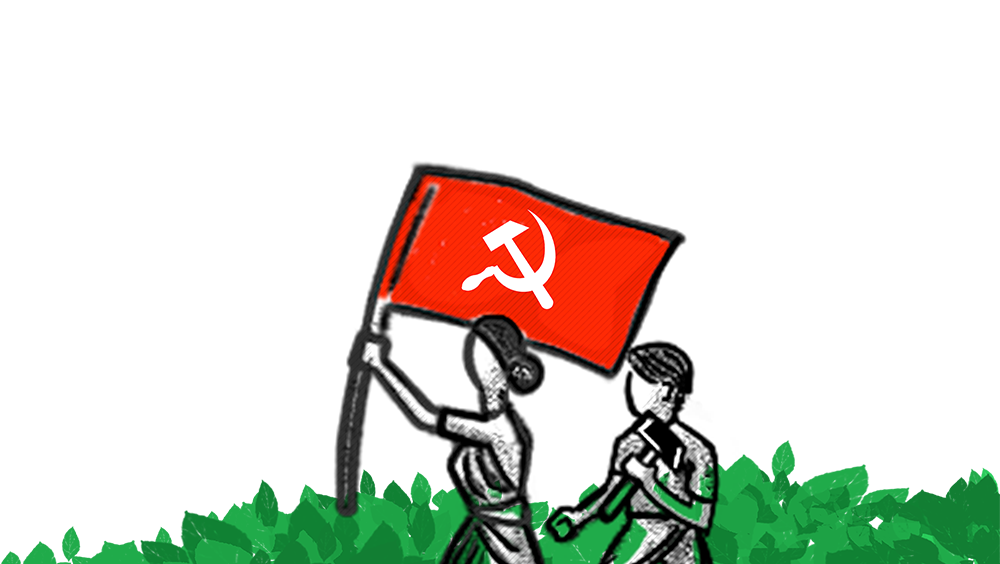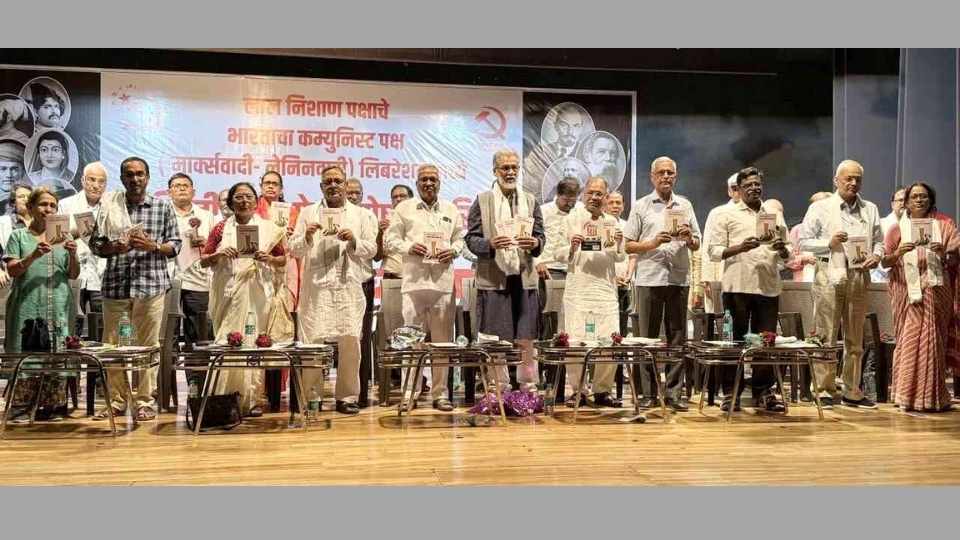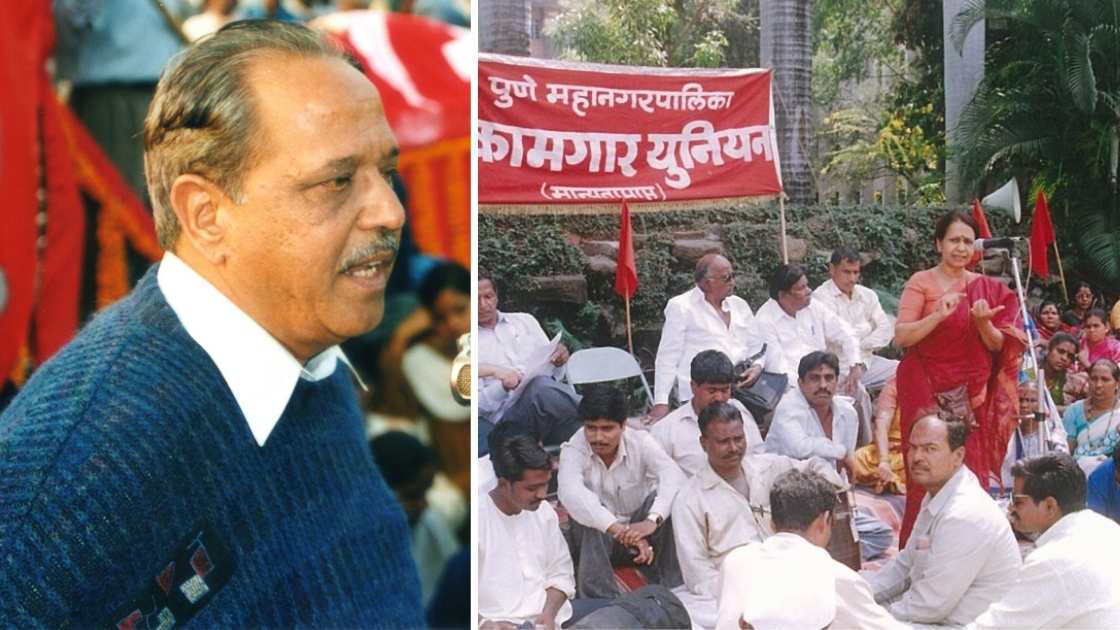In the Lok Sabha elections, the people of Maharashtra gave a decisive verdict against the defection-engineered Eknath Shinde-Devendra Fadnavis government, by handing the INDIA bloc 31 seats (including one independent) out of the 48 MP seats. The BJP was reduced to 9 seats from the 23 it won in 2019, whereas Eknath Shindes Shiv Sena won 7 seats, and Ajit Pawars NCP could manage to win just one victory. Despite this, their political arrogance remains undiminished as they continue with their communal divisive policies and persecution of voices of dissent.
On July 11, the penultimate day of the just-concluded Vidhan Sabha session, the Maharashtra government tabled the Maharashtra Special Public Security Bill, 2024� avowedly to tackle urban naxals�. The Statement of Objects and Reasons of the Bill states that this new law is needed to stop the menace of naxalism� and counter the activities of naxal organizations or similar organizations through their united front� that are creating unrest among common masses to propagate their ideology of armed rebellion against the constitutional mandate and disrupts public order in the State�.
Reading this Bill, one is reminded of the first legislation sought to be introduced in India. it was the Public Safety Bill was ushered in by the British imperialism's company raj in 1918. The purpose of the act was to tackle the increasing spread of socialist and communist ideas and organisations in the backdrop of the Bolshevik revolution in Russia. It was when the Assembly was considering this and the other proposed enactment, Trade Disputes Bill, that Bhagat Singh and Batukeshwar Dutt threw grenades and pamphlets shouting slogans of Inquilab Zindabad in the Parliament. The 1918 Public Safety Bill was finally rejected by the Assembly, with Motilal Nehru strongly rejecting it on behalf of the Indian National Congress.
As the Bill became public it was apparent that this proposed legislation was draconian, repressive and unconstitutional, and intended to be weaponised against political opposition and any form of dissent. Unsurprisingly, the draft of the Bill in question today was not made available to be the public, nor was it subject to any form of scrutiny before it was tabled in the State Assembly. Coming as it did, in the last two days of the Winter Session and only a couple of months before the State elections, this reflects the mockery of parliamentary democracy by the Eknath Shinde-Devendra Fadnavis government, and exemplifies the practice of ramming through laws without any debate or scrutiny.
Overview of the Maharashtra Public Security Bill
A brief scheme of the Bill is necessary to proceed. The Bill empowers the Government to declare an organisation as unlawful�. The consequences of this are four-fold.
Firstly, persons who are members or not members, but associated with the organisation are liable to be punished.
Secondly, the Deputy Magistrate or Commissioner of Police can thereafter notify any place which was used for the activities of such organisation, following which possession of that place is taken and remain in the possession of the Government for as long as it decides.
Thirdly, the Deputy Magistrate or Commissioner of Police shall take possession of all movable property found within such notified place, including moneys, securities and other assets, which could be forfeited to the Government.
Fourthly, any money, securities and other assets will be forfeited to the Government on its satisfaction that it is being used or is intended to be used for such organisation.
The Bill also provides provisions for aggrieved persons to challenge these orders and actions of the State authorities. This, in sum and substance, is the Maharashtra Special Public Security Bill, 2024.
Besides these draconian consequences, the Bill is problematic at so many levels.
Intentional vagueness in definition at the cost of civil liberties and human rights
There are fundamental tenets and principles which guide the drafting of criminal statutes principle of maximum certainty, principle of strict construction, principle of broader purposive approach, presumption of innocence, principle of fair labelling, principle of proportionality, principle of prior fault, nullum crime sine lege (no crime without law) and nullum poena sine lege (no punishment without law), the principle of non-retroactivity, right of self-incrimination and the specificity of offences. It goes without saying that the formulation of criminal statutes proceed on the basis of these core principles with the crafting of provisions not inconsistent with them. It is shocking that this Bill falls short when gauged through the lens of these basic tenets and principles.
The Bill is marked by vague and broad definitions that are antithetical to criminal statutes. An organisation can be declared an unlawful organization if it indulges in or has in pursuance of its objects abets or assists or gives aid, or encourages directly or indirectly through any medium, devices or otherwise, any unlawful activity�. As such the centrepiece of the proposed legislation is the definition of unlawful activity�, which is extremely vague, broad and therefore problematic. It brings within its fold any action which constitutes a danger or menace to public order, peace or tranquillity�; or even interferes or has a tendency to interfere with the maintenance of public order�; or interferes or tends to interfere with the administration of law, or its established institutions and personnel�; or encouraging or preaching disobedience of established law and its institutions�. Another aspect that is deeply problematic is that several of the terms used in this definition danger, menace, encouraging, preaching, etc. are not defined the Bill. Thus by this broad definition, every act of dissent, including peaceful protests and non-violent civil disobedience, could be criminalised. The proposed Bill has thrown its net wider than any other previous legislations and now encompasses individuals, social organisations, civil society, human right groups, trade unions, political parties, etc. The intended consequence of this proposed Bill is to render illusory the basic freedom of speech and expression and right to dissent.
This vagueness in definition goes against the basic tenet of criminal jurisprudence, that a criminal act should be well defined and cannot be left for interpretation since that gives way to abuse of the law. The vagueness and ambiguities will foster arbitrary use by the police and administration with greater chances of repression of the masses.
Vagueness also pervades the definition of organisation� under the Bill. According to the Bill, an organisation is defined as meaning any combination, body or group of persons, whether known by any distinctive name or not, and whether registered under any relevant law or not, and whether governed by any written constitution or not�. Going by this broad definition, the Government can use this law to target any group of people by claiming that they are part of some organisation�, even though such organisation may not even exist!
Unbridled powers to the Government and authorities
Having provided vague and broad definitions, which can be used and abused to quell dissent, the Bill bestows unbridled powers on the Government and authorities in the declaration of an organisation as an unlawful organisation� and the consequences that flow thereon.
The Bill empowers the State Government to declare as an unlawful organisation� any organisation if the Government is of the opinion� that the organisation is, or has become, such! All it takes is for the Government to form such an opinion to altogether end the activities of that organisation. There is no burden of proof whatsoever that is required to be borne by the government in declaring any persons or group and their activities as unlawful. In effect, the Bill empowers the government to pursue any individual or organisation that it considers a threat, to declare all of its activities (including non-violent activity, speech, or communications) illegal, to restrict its activities, and to punish some or all of its members.
To portray an illusion of procedural safeguards, the Bill contemplates an Advisory Board to review the Governments decision of notifying an organisation as unlawful. The farce of due process is engrained in the provisions itself. While it is stated in the Bill that a notification declaring an unlawful organisation� as such will not take effect until the Advisory Board has confirmed the decision of the Government, it also provides an exception to this if the State Government is of the opinion that circumstances exist which render it necessary for the Government to declare an organisation to be an unlawful organisation with immediate effect�!
A question also arises at the possibility of the Advisory Board performing its duties in a fair and non-partisan manner. For this, we need to examine the constitution of the Advisory Board, which according to the Bill shall consist of three persons who are or have been or are qualified to be appointed as Judge of the High Court�. Retired High Court judges and advocates qualified to be appointed as an High Court Judge would form this Advisory Board. This Bill comes at a time when we have seen a sitting High Court judge resigned and contested on a BJP ticket, and a couple of others declare their allegiance to the RSS after retirement. What more needs to be said?
Similar unbridled powers are given to the Deputy Magistrate/Commissioner of Police in regard to notifying any place� which in their opinion� was used for the activities of an organisation declared as an unlawful organisation�. Once this is done, any person living in the place stands to be evicted and possession transferred to the Government until such time that the organisation is not an unlawful organisation� anymore. Such actions are also contemplated in regard to all movable property (including moneys, securities and other assets) found within such notified place, as also any moneys, securities and other assets even otherwise held to be used or intended to be used for such organisation. In all these scenarios, the Bill provides for an appeal by the aggrieved persons to the Government! So the Government that has formed the opinion and caused the declaration of an unlawful organisation would be Appellate Authority against any decision of the Deputy Magistrate or the Commissioner of Police, as the case may be. Thus, wide discretionary powers have been given to Deputy Magistrate/Commissioner of Police regarding immovable and moveable property (including moneys, security and other assets), without no real procedural safeguard or remedy.
Arbitrary and disproportionate punishments
The penalties laid down in the Bill are grossly arbitrarily.
Any person who is a member of an unlawful organization or takes part offences in meetings or activities of any such organization or contributes or receives or solicits any contribution for the organization, shall be punished with imprisonment for a term upto three years and fine of upto three lakh rupees.
Any person who is not a member of an unlawful organization, but who contributes/receives/ solicits any contribution or aid for such organization or harbours any member of such organization, shall be punished with imprisonment for a term which upto two years and fine upto two lakhs rupees.
Any person who manages/assists in the management of an unlawful organization or promotes or assists in promoting a meeting of any such organization or indulges in any unlawful activity of such organization in any manner, shall be punished with imprisonment for a term upto three years and fine upto three lakhs rupees.
Any person who commits/abets/attempts to commit/plans to commit any unlawful activity of such unlawful organization, shall be punished with imprisonment for a term upto seven years and fine upto five lakhs rupees.
What is of great concern is that these offences are defined without any element of mens rea i.e., intent. Even a draconian law like the UAPA has the element of mens rea included in the definition of offences, by qualifying acts with the phrase knowingly and intentionally�. The Bill is hence, draconian and grants excessive, arbitrary powers, as it empowers the state to jail anyone who criticises it or stands against its policies.
This Bill was introduced in the Maharashtra Assembly after the new Criminal Codes were brought into force, which themselves have brought in provisions that are detrimental to civil liberties and human rights. An even more draconian sedition provision has been introduced in the Bharatiya Nyaya Sanhita, 2023, under a newer nomenclature while terrorist act� and organised crimes� are included as general offences. These together with PMLA and UAPA provide the state with a strong arsenal to target its critics.
The Maharashtra Government attempted to further strengthen its hands by throwing this Bill into the mix. However, the introduction of this Bill was opposed by the Opposition parties as well as civil society and human rights organisations, who were unanimous that this was a draconian piece of legislation intended to further supress dissent and cause alarm amongst the citizenry. Moreover, since the Bill was introduced just as the Monsoon Session was ending and was not passed, as such it stands lapsed. Even so, it must be demanded that a formal statement be issued by the State Government assuring that the Bill will not be reintroduced and will be scrapped altogether.
It remains to be seen what the efforts to enact such a draconian law stops here or another attempt would be made by the Maharashtra government. Even so, the BJP has made its intentions very clear by weaponizing criminal laws against any dissent and opposition, and has strengthened its arms by pushing through the three repressive Criminal Codes even as 146 MPs were suspended and without any façade of a democracy. Coupled with the PMLA and UAPA, this is preparation for the unleashing of further repression on the people's resistance fighting the assault on their living, livelihood, jal, jangal, jameen and environment. Ever since the neo liberal reforms have been foisted on the Indian people at the behest of World Bank and IMF since 1991, the Indian state has resorted to more and more repressive laws like TADA to hinder people's resistance to these reforms and their ill effects, now culminating in these laws by a corporate fascist regime. A repressive legal regimen is sought to be unleashed to tackle a basically deep rooted economic-political-environmental crisis responsible for unparalleled inequality, joblessness, all-round deprivation. This battle does not end here.
+++++

Countrywide Protests held against Three Draconian Criminal Codes
Protests were held on July 1 at the call of CPIML across the country demanding postponement of implementation of three new criminal laws and that they must be placed in the new Parliament for proper discussion. Many concerns have been raised by prominent lawyers, civil society activists, political parties and the general public regarding draconian provisions inserted in new laws by the Modi government. These laws were passed in a very undemocratic manner last November when the more than 140 opposition MPs were undemocratically expelled by the Lok Sabha Speaker during the previous Lok Sabha.
Protests were held at many state capitals and district levels by CPIML activists and associated organisations. At Delhi's Jantar Mantar CPIML and lawyers' organisation AILAJ protested against three new criminal laws, which came into force on July 1, today, and will greatly erode the liberties and rights of citizens. The new code which is being advertised as a historic 'decolonization landmark' is actually more draconian than the colonial era code.
The protest at Jantar Mantar was addressed by CPIML Member of Parliament Sudama Prasad where he said that the changes introduced through three criminal laws equip the government with brute power to hollow out our democracy and transform India into a fascist state, hence they must be withdrawn. These laws will further increase the clampdown on legitimate political dissent and protest against social and economic exploitation in the country.
In a statement CPIML General Secretary Dipankar Bhattacharya has said that the new criminal laws will turn India into a police state. Using the lens of Emergency we can call it an institutionalised permanent Emergency where the police will have arbitrary powers and dissenting citizens will be at permanent risk of being jailed.�
In Bihar, protest marches were carried out in Patna, Darbhanga, Arrah, Siwan, Bettiah, Fatuha and other places terming the new criminal codes as anti-people and draconian. In Patna, protest was organised at Budhha Smriti Park, where CPIML state secretary Kunal said that the new criminal laws would transform India into a police state. He likened it to a constitutional emergency where the police would have arbitrary powers, posing a permanent threat of imprisonment for dissenting citizens. These laws are mere tools to erode civil liberties and enhance government repression, more dangerous than even the British era. Protests were also held in Ranchi, Lucknow, Siliguri, Kolkata and dozens of other places in many states.
Earlier on June 27, CPIML Member of Parliaments had written a letter to the President of India along with the various civil society and lawyers petitions demanding the delaying the implementation of the new criminal codes. Writing to the President, the MPs noted that the new laws will erode liberties and legal safeguards of citizens by arming the state with more sweeping and draconian powers. The new laws need a thorough review and wider and more informed consensus. Please advise the government against rushing with their implementation.





